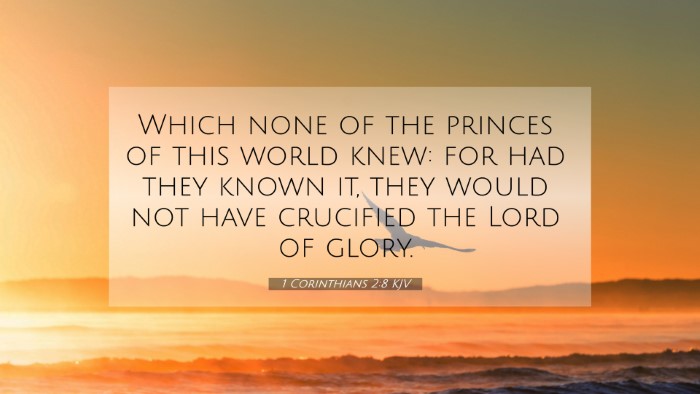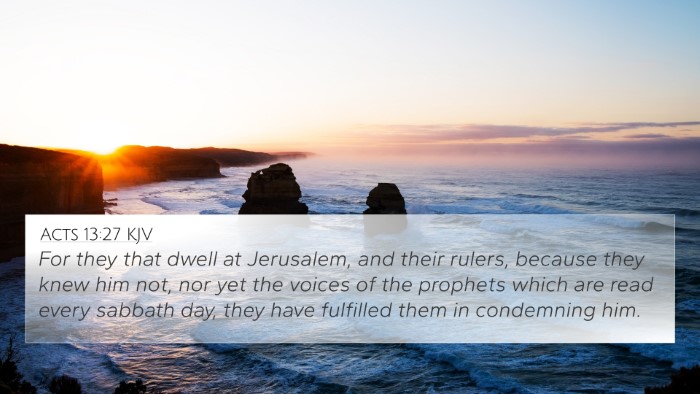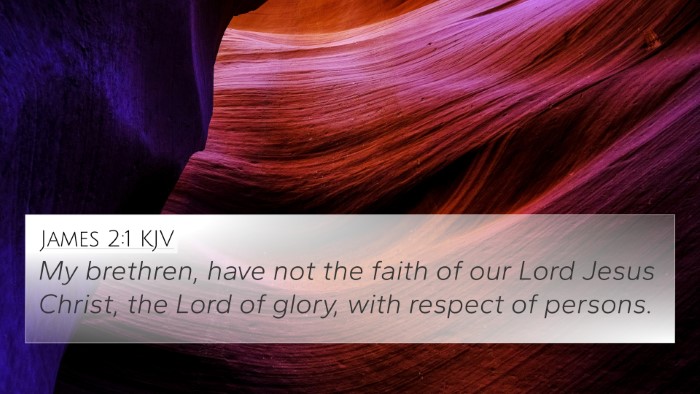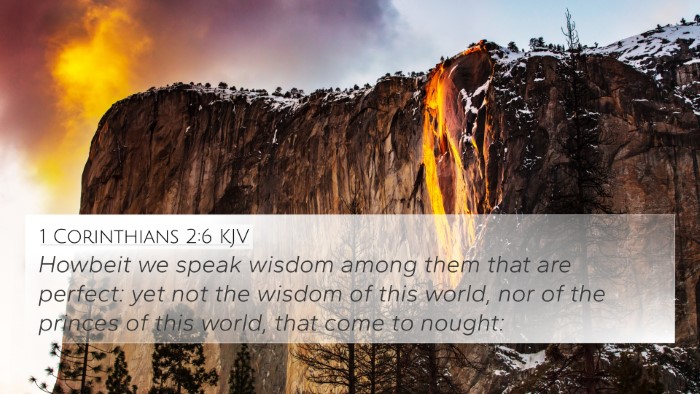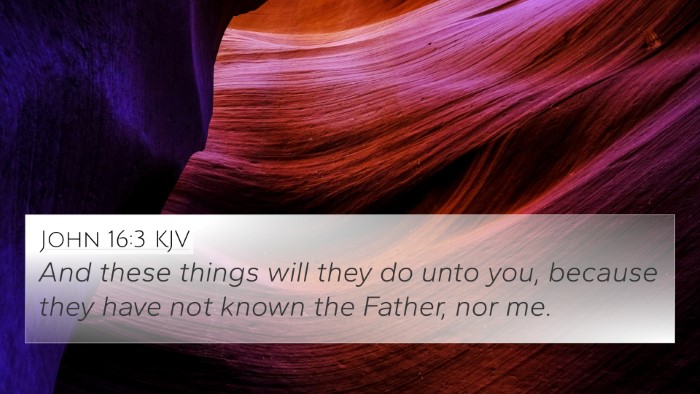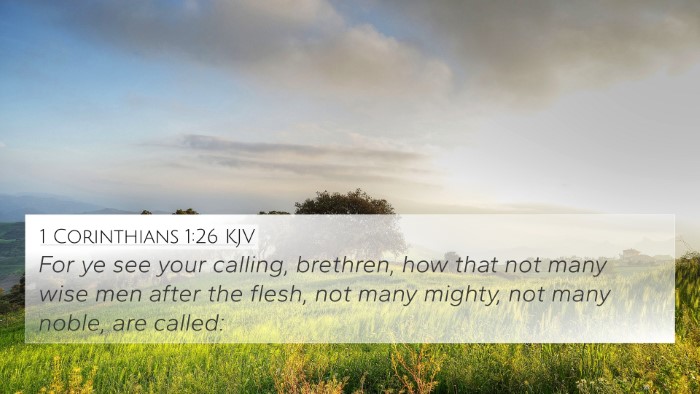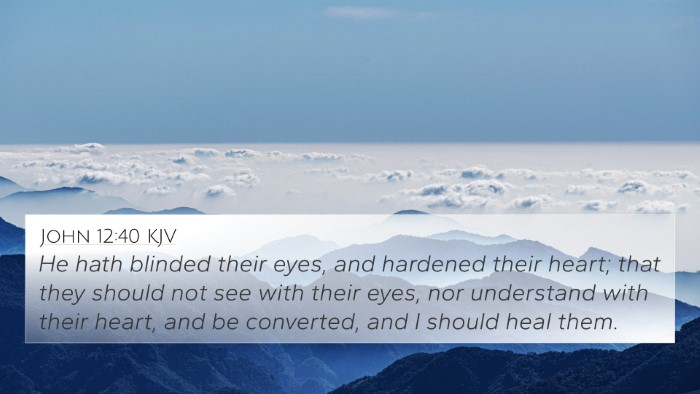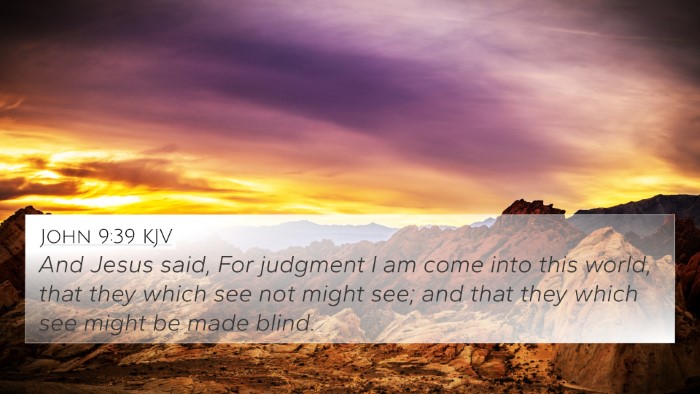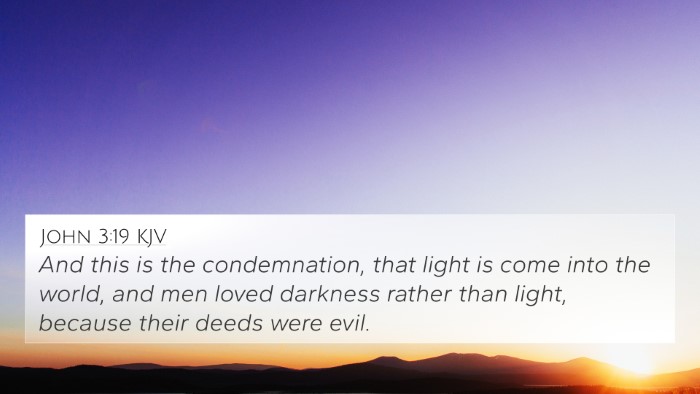Understanding 1 Corinthians 2:8
1 Corinthians 2:8 states: "None of the rulers of this age understood it; for if they had, they would not have crucified the Lord of glory." This verse highlights the ignorance of worldly leaders concerning God’s wisdom and the redemptive plan through Jesus Christ.
Verse Meaning
The Apostle Paul emphasizes the profound nature of God’s wisdom, which is often hidden from those who rely on their own understanding. In examining the interpretation of this verse, scholars like Matthew Henry, Albert Barnes, and Adam Clarke provide insightful commentary on its implications.
Commentary Insights
- Matthew Henry: He notes that the "rulers of this age," referring to both Jewish and Gentile leaders, failed to recognize Jesus as the Messiah, signifying their spiritual blindness. Their actions led to the crucifixion, illustrating the extremes of human folly when apart from divine revelation.
- Albert Barnes: Barnes highlights that the wisdom of God, embodied in Christ, was beyond the grasp of earthly rulers, thereby fulfilling prophetic scripture. He emphasizes that if they had understood Christ's true nature, they would have refrained from such an act of rebellion against God.
- Adam Clarke: Clarke elaborates on the term "Lord of glory," indicating Christ's divine majesty. He reflects on the tragic irony that those with authority could not perceive the ultimate purpose of their actions, ultimately contributing to God’s plan for salvation.
Significant Themes
1 Corinthians 2:8 addresses several key themes:
- The Mystery of God’s Wisdom: The wisdom of God is often hidden from those who depend solely on human wisdom.
- Ignorance of the World: Leaders of the age represent a broader human condition—blindness to God’s truth.
- The Crucifixion as a Turning Point: The verse alludes to the significant event of the crucifixion, which was, paradoxically, part of God’s predetermined plan for salvation.
Bible Cross References
This verse connects with several significant passages that provide a richer understanding of its meaning and implications:
- Isaiah 53:3: "He was despised and rejected by men; a man of sorrows, and acquainted with grief." This prophecy foreshadows the rejection of Jesus.
- John 1:10-11: "He was in the world, and the world was made through him, yet the world did not know him. He came to his own, and his own people did not receive him." This highlights the world’s inability to recognize Christ.
- Luke 23:34: "Father, forgive them, for they know not what they do." Jesus’ plea emphasizes human ignorance and the need for divine mercy.
- Acts 4:27-28: "For truly in this city, there were gathered together against your holy servant Jesus...to do whatever your hand and your plan had predestined to take place." This reflects the fulfillment of God’s plan through the actions of leaders.
- Romans 11:25: "Lest you be wise in your own sight, I do not want you to be unaware of this mystery, brothers..." This speaks to the mystery that is central to God’s dealings with humanity.
- Colossians 2:8: "See to it that no one takes you captive by philosophy and empty deceit..." warns against reliance on human wisdom over divine revelation.
- 1 Peter 1:20: "He was foreknown before the foundation of the world but was made manifest in the last times for the sake of you." This reinforces the preordained purpose of Christ’s coming.
Connections Between Bible Verses
The interconnectedness of scripture reveals how 1 Corinthians 2:8 aligns with numerous biblical themes:
- Wisdom vs. Folly: Proverbs often contrasts divine wisdom with human folly (Proverbs 1:7).
- The Rejected Stone: Psalm 118:22 discusses how the stone rejected by builders becomes the cornerstone, paralleling Christ's rejection by leaders.
- The Lamb Slain: Revelation 13:8 speaks of Christ’s sacrifice established before the foundation of the world, emphasizing the eternality of God’s wisdom.
- Divine Revelation: Matthew 16:17 illustrates how Peter’s recognition of Christ was revealed to him by God rather than by human insight.
Cross-referencing Biblical Texts
To fully grasp Biblical themes and doctrines, employing tools for Bible cross-referencing can be invaluable. Resources such as a Bible concordance or Bible cross-reference guide empower deeper studies by identifying thematic overlaps and scriptural parallels across both the Old and New Testaments.
Thematic Bible Verse Connections
Engaging in a comparative study of Pauline epistles allows us to identify links between theological arguments and how they resonate within the broader biblical narrative. For example, examining Galatians 6:14, where Paul speaks of boasting in the cross, reveals a further layer to the cosmic implications of the crucifixion addressed in 1 Corinthians 2:8.
Conclusion
Understanding 1 Corinthians 2:8 requires exploring its rich theological depth and its connections to other scripture. By recognizing the ignorance of worldly wisdom before divine knowledge, believers are invited to seek the revealed truth found in Christ. Such exploration not only enhances individual faith but also encourages a holistic understanding of the Biblical narrative.


